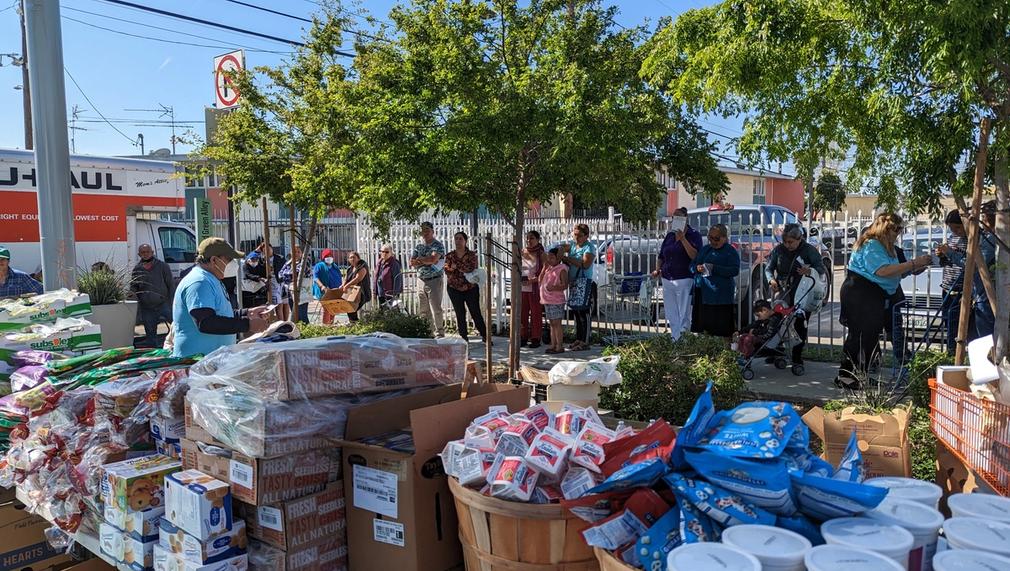Housing insecure people creating housing policy
POWER will train and develop community leaders who are currently unhoused, have recently experienced homelessness, or are currently facing displacement. We will evaluate local initiatives to address the housing and homelessness crisis and win a seat at the table so local government agencies can benefit from the direct, lived experience of people who have faced housing insecurity. Together, we will design programs that draw on real peoples' lived experience to make our housing policies as effective and impactful as possible to house LA together.

What is the primary issue area that your application will impact?
Housing and Homelessness
In which areas of Los Angeles will you be directly working?
Central LA
San Fernando Valley
West LA
City of Los Angeles
In what stage of innovation is this project, program, or initiative?
Expand existing project, program, or initiative
What is your understanding of the issue that you are seeking to address?
LA is facing a dire affordable housing crisis, with LA being the least affordable big city in the country. There are already 69,144 unhoused individuals, and it's estimated that the courts will be flooded with more than 200,000 eviction cases as COVID protections expire. It's essential to give this crisis the full attention and resources it demands, and we believe people who are directly experiencing housing insecurity are the greatest untapped human resource we have to contribute to solving this crisi. Angelenos consistently list housing and homelessness as priority #1, (as it was for the LA2050 Grants Challenge). There is no shortage of energy and willingness to work toward a solution. However, despite devoting resources to housing and homelessness programs, these programs seem to fail or are ineffective. We believe community input from directly-impacted residents will result in comprehensive programs that make an impact by dramatically improving programs to house all Angelenos.
Describe the project, program, or initiative this grant will support to address the issue.
This grant will support our organizing work in developing community leaders who face housing insecurity, and train them to directly participate in creating and implementing LA's ambitious programs to address and end homelessness. We will specifically work with three cohorts of people, and win a seat at the table in three key housing initiatives currently underway. First, we will organize public housing residents to participate directly in Housing Authority of the City of LA (HACLA) investments in redeveloping public housing. HACLA is currently planning to redevelop William Mead Homes, a 415-family community in Chinatown. Organizing residents at William Mead and other public housing sites, we will ensure that HACLA's massive investments in redeveloping housing result in increased affordable housing, matched with services and amenities, with deep community buy-in that previous HACLA redevelopments have lacked. Second, we will organize people who are unhoused or living in transitional or permanent supportive housing to work with the LA Homeless Services Authority to improve case management, security and other policies that currently make programs like Inside Safe inefficient, and demoralize community support for future programs. Finally, we will work with tenants in rent-stabilized ("rent control") housing to ensure that the LA Housing Department is effectively enforcing tenant protections, and zealously working to prevent more Angelenos from becoming homeless.
Describe how Los Angeles County will be different if your work is successful.
We know that most of Angelenos desperately want to see solutions to the housing and homelessness crises that work, that are grounded in care and compassion for everyone. We also know from our own experience organizing in LA since 1999 that there is a gap between passing new policies, and implementing those initiatives. Local government agencies struggle to actually implement the policies communities want, and they often try to do so alone, facing opposition from special interests who don't want them to succeed. The people this hurts the most, and the people who have the hardest time participating in policy implementation are low-income housing insecure Angelenos, who are overwhelmingly people of color. We believe organizing that is focused on putting those most directly impacted at the center of policy design and implementation will make programs better and more effective, and restore faith in our collectively ability to face complex challenges like the housing crisis.
What evidence do you have that this project, program, or initiative is or will be successful, and how will you define and measure success?
This proposal will build on our experience organizing since 1999. We have successfully helped thousands of tenants implement local land use policies, such as the Coastal Zone's Mello Act, that have created $100s of millions worth of new affordable housing, and preserved thousands of existing units of affordable housing. We have successfully prevented the large scale loss of public and publicly-subsidized housing, private housing, and helped create new affordable housing. We've been successful defending tenants across the city from displacement, and building the momentum toward ambitious solutions, like Measure ULA. We measure our outcomes both quantitatively and qualitatively. Quantitatively, we track how many people we defend, help train, and who get involved, and how many units of housing we create and protect. Qualitatively, we want as many Angelenos as possible to understand current policies, and how they can directly participate in improving them.
Approximately how many people will be impacted by this project, program, or initiative?
Direct Impact: 500
Indirect Impact: 284,094